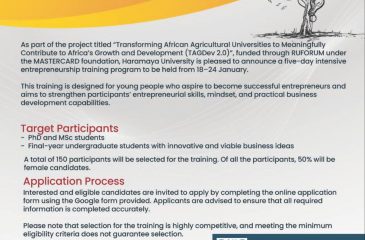Haramaya University has significantly enhanced its agricultural researchers capabilities through a comprehensive three-day training workshop focused on advanced crop modeling techniques.
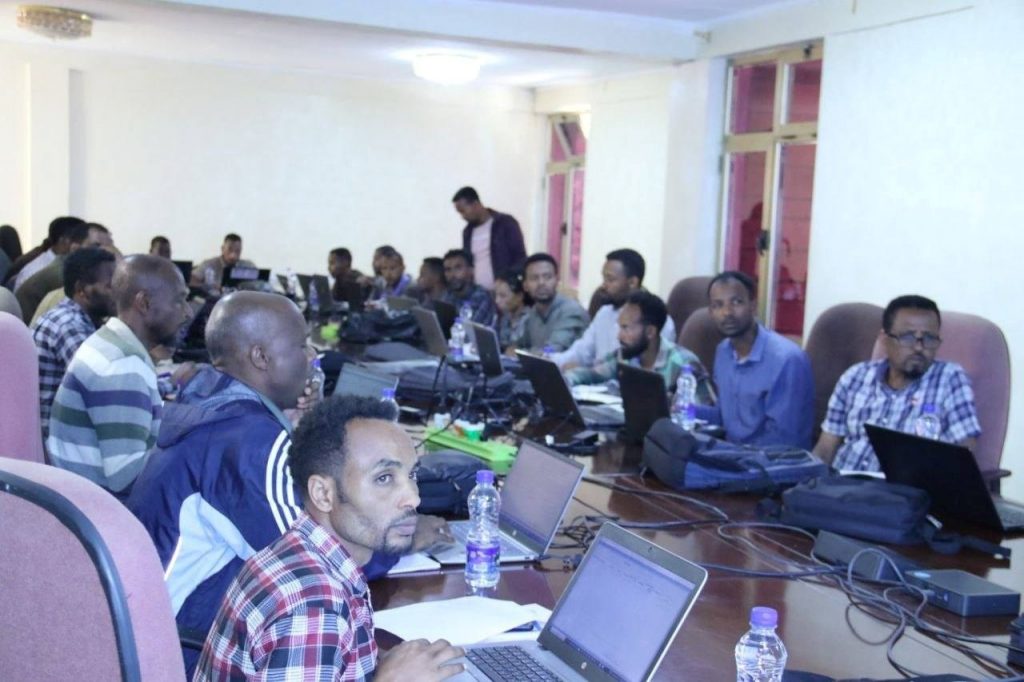
The initiative, spearheaded by the University’s Vice President for Research and Community Engagement, equipped researchers with the skills to utilize the Agricultural Production Systems Simulator (APSIM) and the Decision Support System for Agrotechnology Transfer (DSSAT). These powerful tools are crucial for tackling the complex challenges facing Ethiopia’s agricultural sector.
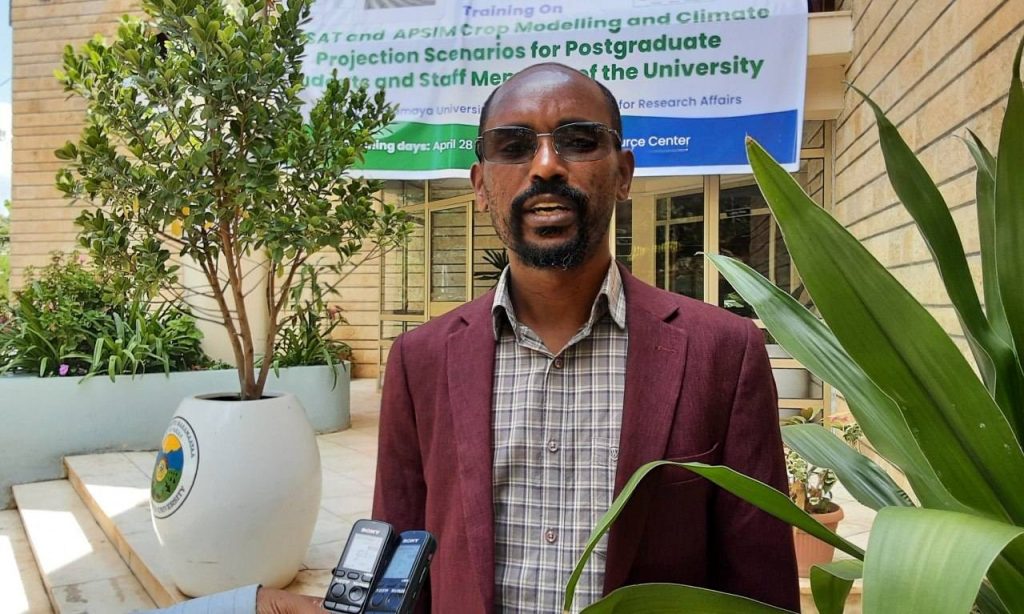
Dr. Deribachew Bekana, Director for Research Affairs at Haramaya University, underscored the pressing need for such training, highlighting the significant impact of resource constraints, land degradation, and climate change – including unpredictable rainfall and temperature shifts – on food production.
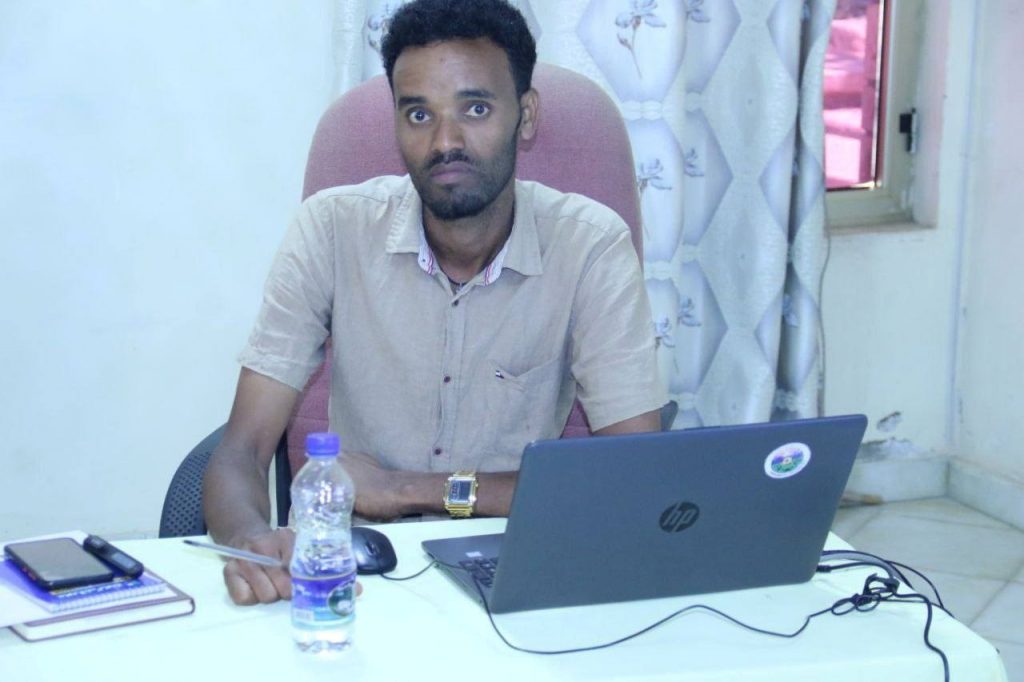
Mr. Girma Asefa Bogale, Agrometeorologist within the School of Natural Resources Management and Environmental Sciences, College of Agriculture and Environmental Sciences at Haramaya University and one of the lead trainers, emphasized the program’s role in building the capacity of agricultural experts. He stated that the training would empower them to conduct high-quality research essential for the sector’s advancement.
Mr. Girma further elaborated that Haramaya University is strategically investing in its postgraduate students and staff by providing them with hands-on skills in APSIM and DSSAT. These sophisticated quantitative models integrate diverse data on climate, soil, crops, and management practices to simulate crop growth, yield, and soil processes. This capability allows researchers to perform predictive analyses and explore crucial “what-if” scenarios for informed decision-making.
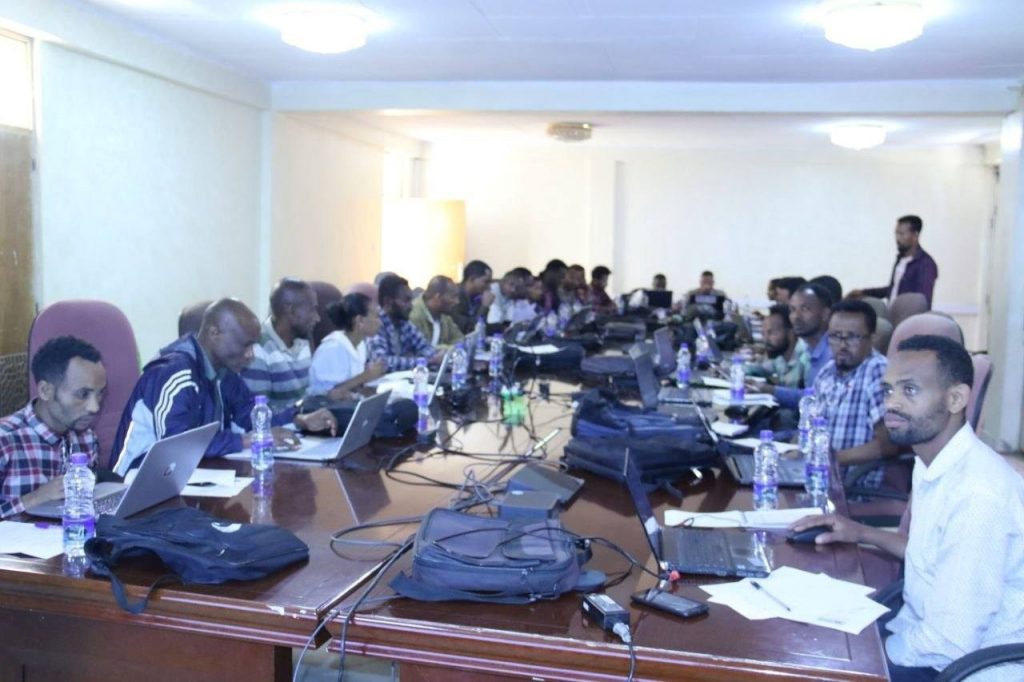
A key objective of the training, according to Mr. Girma, is to enable researchers to apply these modeling tools in conjunction with Global Circulation Model (GCM) climate projections. This will allow for comprehensive assessments of future agricultural impacts resulting from climate change. Proficiency in these models provides a robust understanding of agro-ecosystem interactions and cultivates essential expertise for careers in systems modeling, data analysis, simulation interpretation, and precision agriculture.
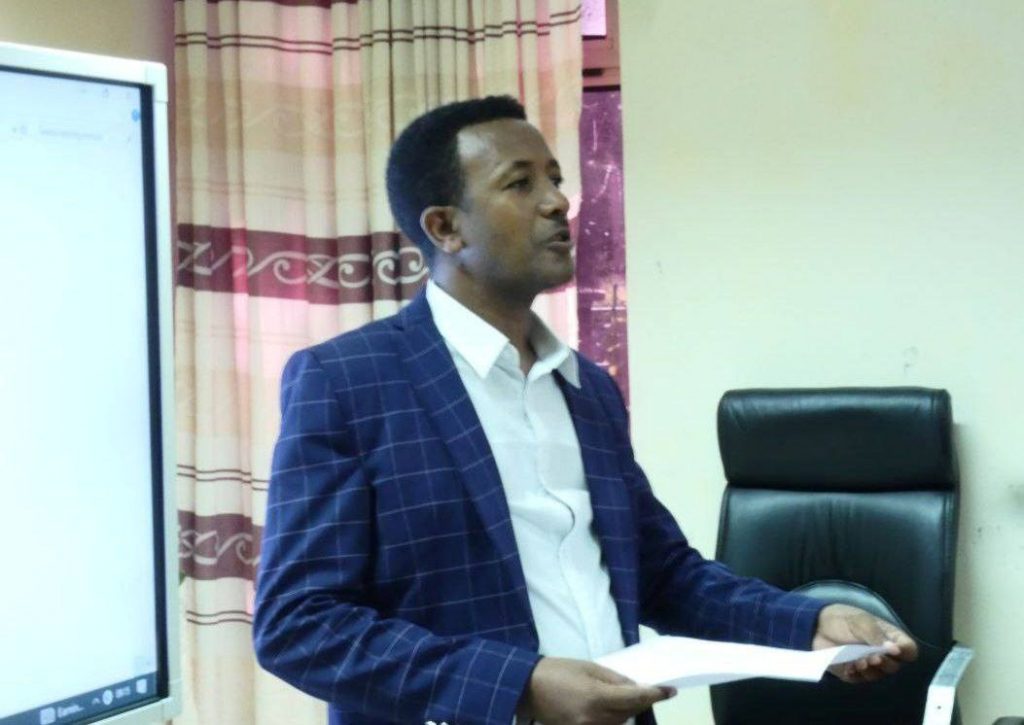
At the workshop’s conclusion, Dr. Yonas Moges, Research Thematic Area Leader of “Productivity and Environmental Sustainability for Food Security and Poverty Alleviation” within the School of Plant Sciences, urged the trainees to integrate their newly acquired knowledge with their existing experience. He expressed his expectation that this synergy would translate into impactful research leading to increased agricultural production and productivity, as well as the development of innovative technologies to improve the livelihoods of farmers.
Participants lauded the “insightful and highly valuable” training program, emphasizing its direct applicability to their postgraduate research. They particularly appreciated the practical, hands-on experience, noting the novelty of such in-depth training involving the integration of research data and comparison with previously published findings in indexed journals. This approach has significantly boosted their morale, motivation, and encouragement towards research endeavors within the academic institution. The training is expected to substantially build student capacity and enhance Haramaya University’s practical research capabilities.
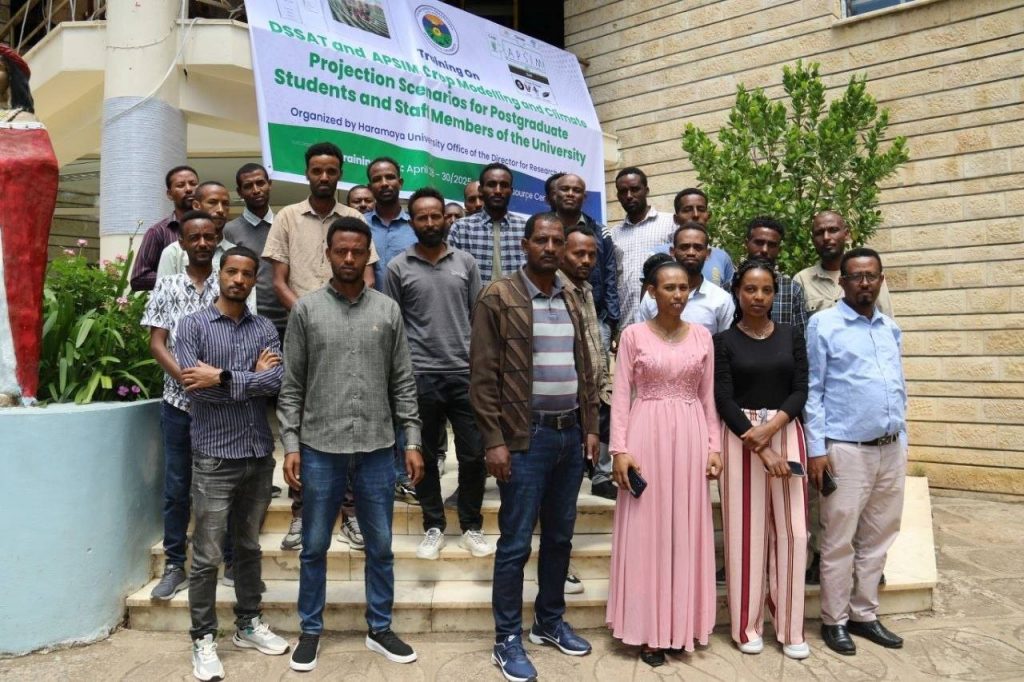
Over 30 professionals, comprising Haramaya University staff members and postgraduate students from diverse disciplines, actively participated in this pivotal training initiative, marking a significant step towards strengthening agricultural research and innovation in Ethiopia.
Reporter:- Shemsedin Mohammed
Photographer:- Foad Ahmed Ali
Haramaya University Public & International Relations Directorate

